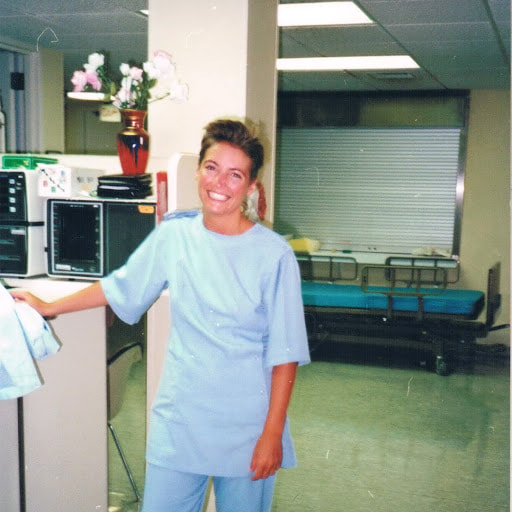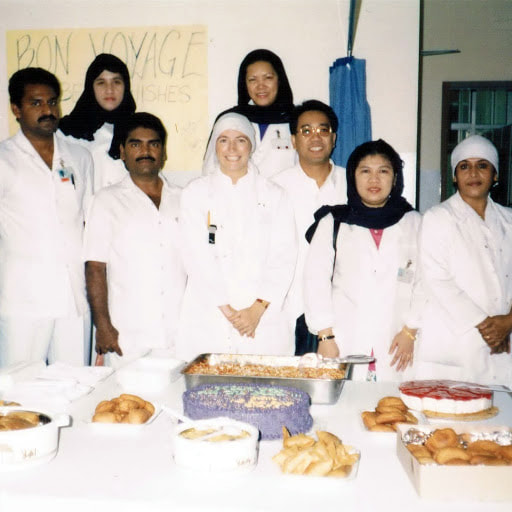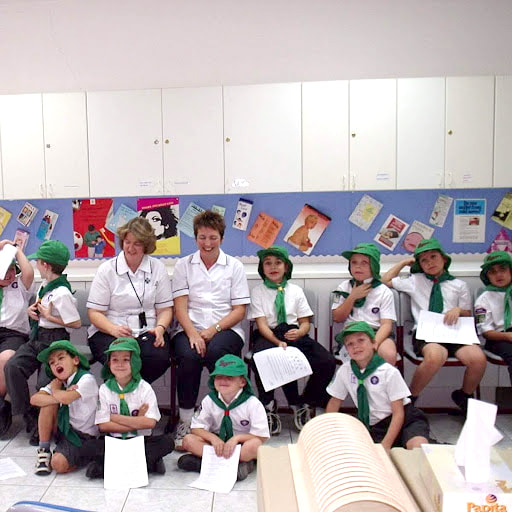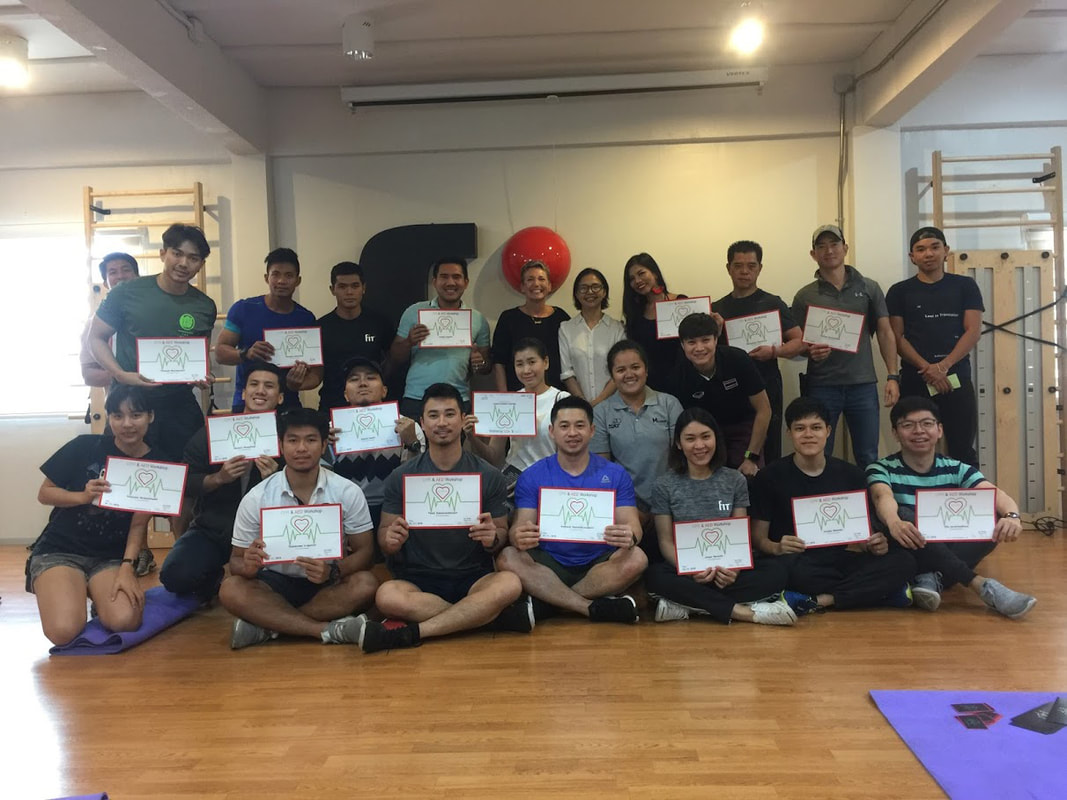By Ruth Gerson
Once a nurse, always a nurse. This is how Debbie Thompson views herself. If not ministering to the sick, then imparting her knowledge in that very valuable area of healthcare.
Today Debbie runs her own small business here in Thailand called First Aid Solutions, with aims to spread the knowledge and expertise of first aid to help in cases of emergency. These are valuable services that can save lives. Over coffee, Debbie smiles as she recalls her adventures, venturing to Saudi Arabia as a single foreign woman to work in the country’s healthcare.
Born and trained in Liverpool, England, Debbie was recruited in 1988 from a burns hospital to work in a Saudi military hospital. Young and fair haired, she must have been somewhat of a sensation there. This is where she met her husband whose work was building network systems and logistics. It was the type of work that took him from place to place, including back to the UK and abroad again, then back to Saudi Arabia when Debbie returned to hospital work there (1992-1995), this time as supervisor in the hospital burns unit, in which she had specialized in the UK.
Debbie followed her husband wherever his work took him, leaving Saudi Arabis in 1995 for Malaysia and from there to Taiwan and Australia, a good deal of moving around. She describes these years as the hiatus in her working life, a time when her children were born, being able to spend time with them.
It seems however that her guiding light continued to be healing and caring for people. Upon returning once again to Saudi Arabia in 2002 for two-year stay, Debbie held the position of school nurse and health educator. The flexibility of her work suited her nomadic life style of moving back and forth between countries and continents.
Born and trained in Liverpool, England, Debbie was recruited in 1988 from a burns hospital to work in a Saudi military hospital. Young and fair haired, she must have been somewhat of a sensation there. This is where she met her husband whose work was building network systems and logistics. It was the type of work that took him from place to place, including back to the UK and abroad again, then back to Saudi Arabia when Debbie returned to hospital work there (1992-1995), this time as supervisor in the hospital burns unit, in which she had specialized in the UK.
Debbie followed her husband wherever his work took him, leaving Saudi Arabis in 1995 for Malaysia and from there to Taiwan and Australia, a good deal of moving around. She describes these years as the hiatus in her working life, a time when her children were born, being able to spend time with them.
It seems however that her guiding light continued to be healing and caring for people. Upon returning once again to Saudi Arabia in 2002 for two-year stay, Debbie held the position of school nurse and health educator. The flexibility of her work suited her nomadic life style of moving back and forth between countries and continents.
Fast forward to 2010 when Debbie and family arrived in Thailand. With still one child at home she was undecided of what to do with her time. She followed the route of many expat women joining various clubs and organizations, but the sparkle of these seemed to have faded quickly. Debbie craved to embark on something meaningful that would satisfy her and that would be an asset to her surroundings.
With a sigh and a smile, leaning back in her chair, she says that she found it, and credits Dr Donna Robinson of Med-Consult in directing her back to the healthcare path when asked to hold a workshop in CPR for a school staff.
This was the stimulus that she needed and which drove her to become a certified CPR trainer in Thailand. CPR (Cardio-Pulmonary Resuscitation) is applied when a person stops breathing, or when the heart rate stops beating correctly, helping to restore the flow of oxygen to the body. Training with Bangkok First Aid she became an EFR (emergency first response) trainer, “which meant that I could teach their program and deliver their courses to schools and businesses,” she says.
With a sigh and a smile, leaning back in her chair, she says that she found it, and credits Dr Donna Robinson of Med-Consult in directing her back to the healthcare path when asked to hold a workshop in CPR for a school staff.
This was the stimulus that she needed and which drove her to become a certified CPR trainer in Thailand. CPR (Cardio-Pulmonary Resuscitation) is applied when a person stops breathing, or when the heart rate stops beating correctly, helping to restore the flow of oxygen to the body. Training with Bangkok First Aid she became an EFR (emergency first response) trainer, “which meant that I could teach their program and deliver their courses to schools and businesses,” she says.
Encouraged by her husband, Debbie set up her own company in 2015, First Aid Solutions, which is registered with the Thai government.
She has given courses to embassies, students, parents and nannies. Debbie feels that her skills are far reaching and will train anyone above the age of 10, saying that everybody should be able to administer CPR and first aid. This includes the AED (Automated External Defibrillator) a gadget giving an electric impulse heartbeat. These were recently mounted on the walls in BTS and MRT transportation systems, of which the public is most likely unaware.
Having taken healthcare for granted all her life, Debbie is now aware through her teachings of the great need to introduce these skills to the public. When asked whether there is demand for this kind of business in Thailand she answers, “I see steady progress as well as a potential for growth.” Above all, Debbie enjoys and believes in what she does. Her all female Thai staff includes trainers and two nurses who help with large workshops, those of more than 12 people.
As this is an introductory concept in Thailand, the beginning was a bit hard going. However, Debbie has invested much of herself in this work with hopes of making it a success. She continues to take refresher courses in the UK and now teaches courses for treating adults, children and infants.
According to Debbie, the general public is becoming more aware of the importance of being able to give first aid to others, with even some workplaces asking young applicants for CPR certification. It is a health area that seems to have come a long way over the past few decades, and Debbie Thompson is an active part of it.
[email protected]
www.firstaidsolutionsbkk.com
She has given courses to embassies, students, parents and nannies. Debbie feels that her skills are far reaching and will train anyone above the age of 10, saying that everybody should be able to administer CPR and first aid. This includes the AED (Automated External Defibrillator) a gadget giving an electric impulse heartbeat. These were recently mounted on the walls in BTS and MRT transportation systems, of which the public is most likely unaware.
Having taken healthcare for granted all her life, Debbie is now aware through her teachings of the great need to introduce these skills to the public. When asked whether there is demand for this kind of business in Thailand she answers, “I see steady progress as well as a potential for growth.” Above all, Debbie enjoys and believes in what she does. Her all female Thai staff includes trainers and two nurses who help with large workshops, those of more than 12 people.
As this is an introductory concept in Thailand, the beginning was a bit hard going. However, Debbie has invested much of herself in this work with hopes of making it a success. She continues to take refresher courses in the UK and now teaches courses for treating adults, children and infants.
According to Debbie, the general public is becoming more aware of the importance of being able to give first aid to others, with even some workplaces asking young applicants for CPR certification. It is a health area that seems to have come a long way over the past few decades, and Debbie Thompson is an active part of it.
[email protected]
www.firstaidsolutionsbkk.com





 RSS Feed
RSS Feed
















